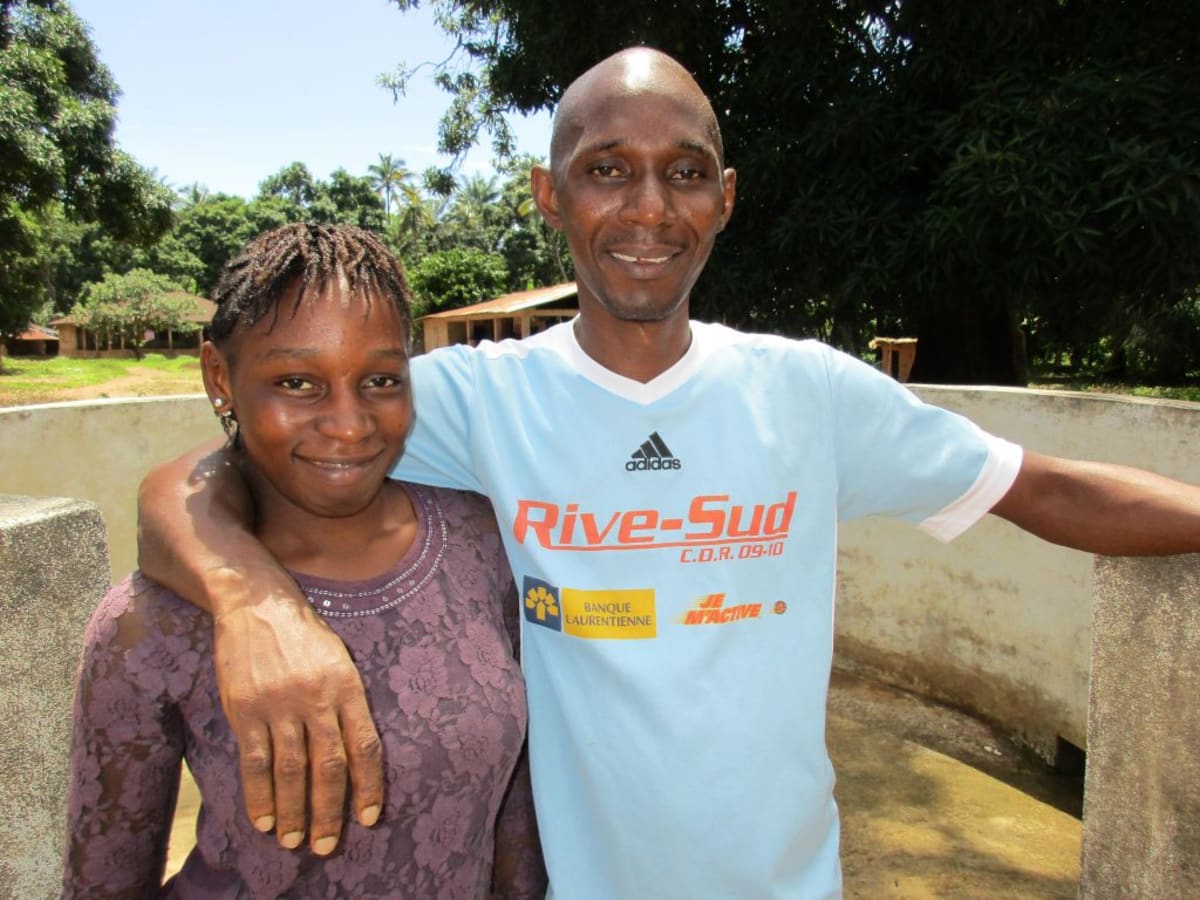Mayaya Village was founded by the Bullomite Tribe, and was an affluent area. Elaborate, fenced homes were built up for large families. Since then, Mayaya Village has been taken over by the Susu Tribe. The previously impressive homes are now barely standing, yet are still inhabited by hundred of people. The Susu people living here rely on farming and fishing to earn their daily bread.
Amidst sprawling land, there's a swamp that serves the people of Mayaya Village. Lots of activity goes on here. Most people bring jerrycans to fetch water, wading in knee deep and dunking the container. Many others bring their laundry to clean and then bathe after its done. The swamp's water is contaminated by soap, dirty clothes, and dirty people. Debris is visibly floating in the water.
The consequences of drinking this water are devastating, but locals have no other option. Diarrhea is a daily condition that accompanies rampant waterborne disease.
When this project is funded, Mayaya Village will receive a new well that will provide clean, adequate drinking water.
Water Situation
During our visit to the swamp, we observed little boys playing in the water before bringing it back home to their families. These small children and women are those most responsible for fetching water, but little do they know that their daily habits contribute to drinking water contamination. Not only do locals need a clean water source, but they need to learn how fetching, transporting, and storing water must be done properly to ensure its safety.
The consequences of drinking this swamp water are devastating. People suffer from diarrhea on a daily basis, and nobody is a stranger to waterborne diseases like cholera and typhoid.
There is also a well that often breaks down and needs repair. With the recent construction plans for a main road, community leadership has been informed that the well is marked for demolition. Even if it is not shut down, this well is already too little for a community of over two thousand people, and the long lines have forced women and children to abandon their wait and walk to the swamp. This well cannot efficiently serve this large population.
Sanitation Situation
Less than half of households have their own pit latrine. The pit is dug to about ten feet deep with a large slab of concrete with a hole suspended over the top. The pits are even lined with plastic, making these some of the better latrines we've seen. This is because the community was affluent when it was first established. The families that don't have their own latrine usually share with their neighbor.
This area was hit hard by Ebola, which changed the mindset of those who survived. Many of the survivors now understand the importance of washing hands and bathing on a regular basis, so we ran into over a dozen hand-washing stations during our visit. Many of these even had a cleaning agent such as soap or ash.
Households dispose of their garbage down at the wharf. When it piles up too high, it is burnt and later used as fertilizer in gardens.
Plans: Hygiene and Sanitation Training
Training will last for three hours a day for three days. The facilitators have already assessed sanitation here and decided that hand-washing and using the latrine will be strongly emphasized. Though quite a few hand-washing stations were observed during our initial visit, we require that each and every family have their own place to wash their hands. During our hand-washing sessions, community members will be taught how to make their own hand-washing station out of a plastic jerrycan, sticks, and rope. These are the best solution for rural areas, since all the materials are all easily replaceable. Though pit latrines in this community are well-built, we also require that every family have their own.
Training will also result in the formation of a water user committee that will take responsibility for their new well. The members will manage and maintain the pump to the best of their ability, and will call our office if they need a mechanic to make a repair.
Plans: New Borehole Well
The proposed location for this borehole is in an open field where it is least likely to be contaminated. There is an old school building on this field, but the school has since moved to another area of the village. This new well will be in a location opposite to the side that already has a well, providing equal water access for all community members that previously needed it.
The borehole will be drilled with an LS200 hydraulic rig, and the well will be installed with an India Mark II pump.

 Borehole Well and Hand Pump
Borehole Well and Hand Pump
 Rehabilitation Project
Rehabilitation Project



















